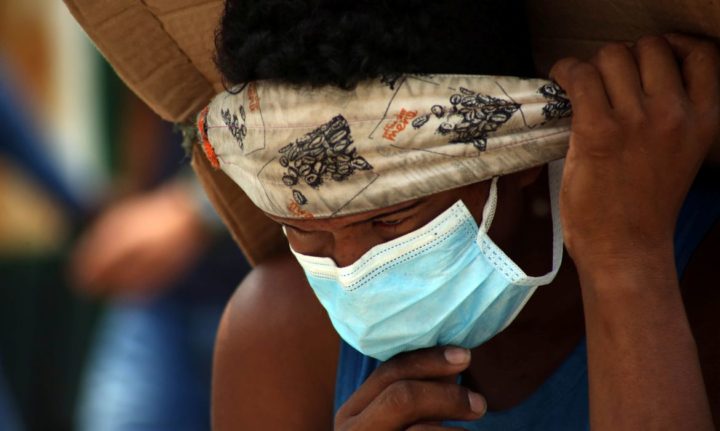In such communities, 7,753 have been infected and 349 killed
By Letycia Bond
The COVID-19 pandemic has reached at least 11 indigenous ethnic groups, according to the National Committee for Indigenous Life and Memory. In the report published by the committee, formed by indigenous leaders, the total number of people infected with the novel coronavirus in such communities has reached 7,753, with the death toll at 349.
Also included in the report are the Warao, Venezuela’s second largest indigenous people, who have sought refuge in Brazil. A little over a month ago, the disease affected 44 ethnic groups, as counted by Agência Brasil, showing that the disease may spread quickly through the 305 indigenous groups living in the country.
The figures surpass those registered officially by the Health Ministry, which has released daily reports. The data from the Special Secretariat for Indigenous Health (Sesai) show 4,771 confirmed cases of the disease as well as 128 obits, as of Wednesday (24). The document also says that 614 cases are under investigation.
In its survey, the ministry classifies the data from the Special Indigenous Sanitary Districts (DSEIs). The region with the highest number of confirmed cases of the disease is Alto Rio Solimões (555), followed by Maranhão (493), Guamá-Tocantins (417), and Rio Tapajós (305).
The data collected by the indigenous leaders, the division takes place by state. Amazonas ranks first, with 152 cases, followed by Pará, with 62, and Roraima, with 41. In all, 19 states have registered COVID-19 cases among the indigenous.
The National Council of Justice (CNJ) on Tuesday (Jun. 23) created an observatory to monitor the protection of indigenous people, particularly vulnerable during the pandemic. On the observatory’s website, visitors can find documents who bring more transparency to federal initiatives regarding this section of the population, like the distribution of food stamps and hygiene kits.
In a note, Funai declared Wednesday (24) it has distributed 215 food parcels and some 45 thousand cleaning and hygiene kits to indigenous villages across the country. It also stated it has earmarked $4.25 million in plans to tackle the pandemic as well as setting as goal to distribute over 500 thousand food parcels.










